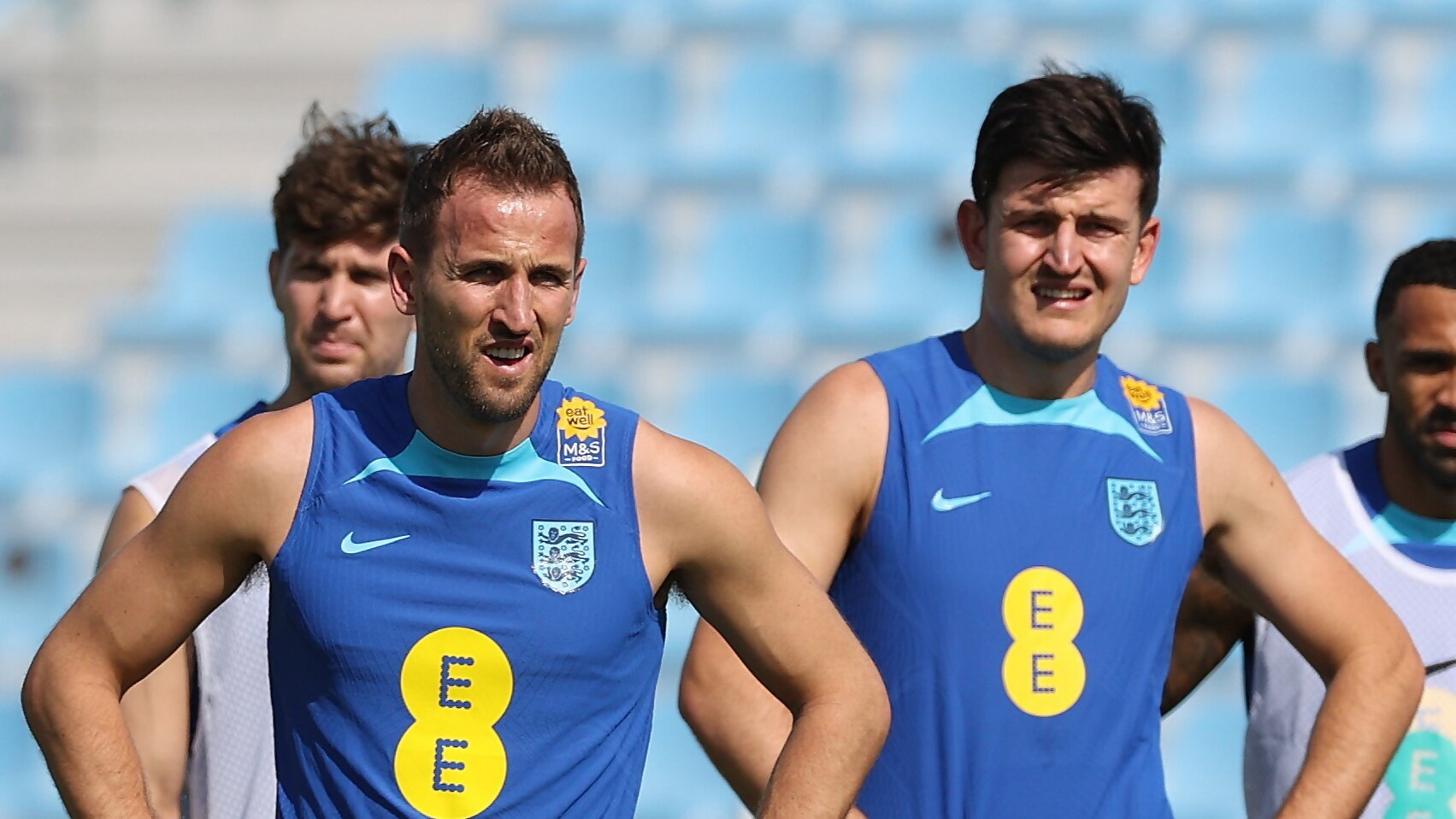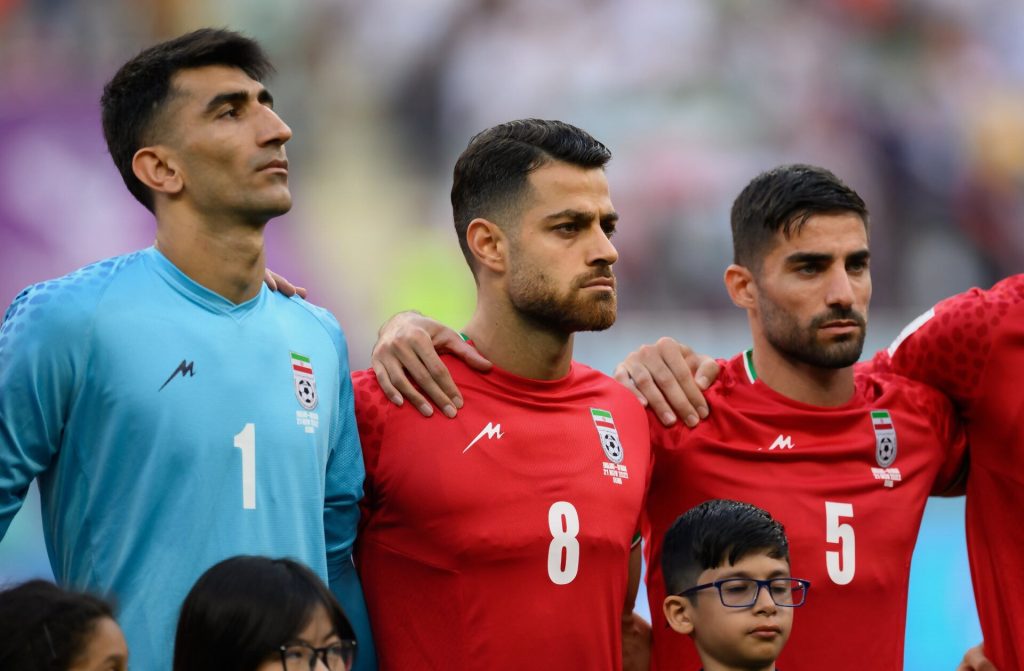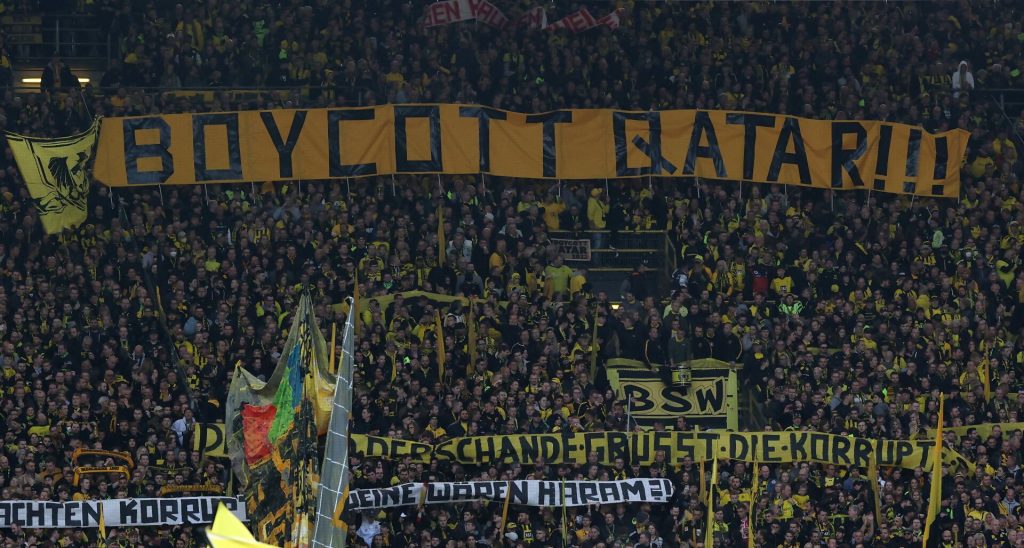
It’s okay, I don’t have a lot of sympathy for multi-millionaire footballers either. Best we get that established upfront. But I do think they’re being put into a not entirely fair situation here.
For what I have slightly more sympathy for is young footballers, wanting to play in tournament they might have dreamed about growing up, being asked to make the political statements those in authority have shirked. Yep, it’s a World Cup article.
Kick off
The campaigns of both the England and Wales football team began at the 2022 World Cup yesterday, a tournament mired in murkiness, shadiness and intolerance. The results of both nations turned out well, albeit arriving hours after the announcement that neither side’s players would wear a ‘One Love’ armband, as per a directive from football’s governing body, FIFA. FIFA instead insisted that players went along with its official protest gesture, and threatened yellow cards to any players who didn’t toe the line.
Right up until kick-off, the abandoning of this simple gesture in solidarity and support with the LGBTQ+ community was making the headlines. The players were left taking the flack – rightly or wrongly – and being questioned as to whether they were really LGBTQ+ allies for not wearing the armband in spite of FIFA’s dictat.
Certainly in the context of a powerful protest from the Iranian national team against the government of Iran – something that could carry far-reaching repercussions for its players – abandoning the One Love armband over the threat of a booking looks a bit weak. But still: there’s a broader question as to whether this should have all been left to players in the first place.

Wrong
It’s no secret then that this year’s World Cup has been – rightly – overshadowed by the controversies that have dogged it since FIFA announced who was hosting the competition. A large part of that is the concern over the host nation. The allegations that thousands of migrant workers died to built the stadia for the competition. The fact that same sex relationships – and even the perceived promotion of them – is illegal in Qatar. The feeling that it was a tournament bought, rather than earned.
Yet all of this is nothing new. This has been known about for years, and still, those in positions of power to do something about it walked on by. Even when it was announced, contrary to the original bid for the tournament, that FIFA would be shifting the World Cup to winter for the first time, nobody did anything. Right throughout the journey of this World Cup, it’s a tournament that’s being marked by those in power turning a blind eye. Oh sure, there have been a few grumbles and words of discontent. But action? Football associations finding the backbone to say no? Don’t be daft.
Just what a shitshow it has become is finely demonstrated when a figure as disgraced as Sepp Blatter – the former boss of FIFA – admits that awarding the tournament to Qatar was a mistake. Sepp Blatter! It’s like Boris Johnson suggesting that marriage vows might need a bit of tweaking after all. Mind you, it would have been more use if Blatter had made his statement when his face was actually feeding in the FIFA trough, rather than long on the outside of it.
Thus, we arrive at the tournament itself, and the onus to protest, to do something about this, is on the shoulders of footballers. Of a bunch of primarily twentysomethings who chose a career in sport, rather than politics. Players who have a platform, certainly, albeit not necessarily one that they asked for. The hard truth of this World Cup is that it’s being hosted in a country where intolerance is effectively mandated, because nobody with the power to do anything about it, did anything. Yet it’s now the players who are at the heart of many’s discontent.
Is it fair? Well, I’d suggest that there’s a world of difference between a fortysomething former footballer taking Qatari money and toeing the party line, and asking, say, a 21-year old defender to make a stand. That so many young footballers have used their platforms for good is admirable, of course, but the expectation that they have to? That’s trickier. I know the version of me in my twenties would have struggled with that.

Together
Undeniably, what makes the protest of the Iranian team so doubly powerful was they stood collect, together, against power. That they shouldn’t have been the ones having to make the stand, yet they did. In the case of the One Love armband, I still struggle with the fact that FIFA instructed referees to book any player sporting the band on the pitch. I think, realistically, the way to make that protest powerful would be to be collect. Would a referee book 11 players each game? If everyone stood up, it might just work. Asking one person to do it, and attacking them when they don’t? Again, that’s more difficult.
But it still gets away from the main point. That those at the top not just of football’s governing body, but of the football associations and governments of the world, have been missing in action at a point when the players they’re responsible for needed them. A dereliction of duty, that’s passed the onus onto those on the front line of the tournament. It’s easy for me on Twitter to say I’d wear the armband, but I don’t have to face a consequence for that. But the fact that it’s come down to the players themselves to make the choices goes to just how ridiculous and damaged the situation has become.
The protests, the boycotts, the demonstrations? From those that matter, it all feels a decade too late. This was all stoppable, nobody stopped it. And as contentious as it may be, I don’t think you can blame the footballers themselves for that.


